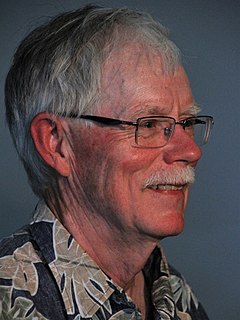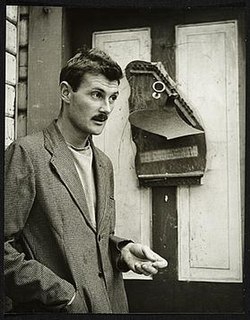A Quote by Jiddu Krishnamurti
There is no partial sensitivity; either it is the state of one's whole being, total consciousness or it is not there at all
Quote Topics
Related Quotes
Biography always has fulfiled this role. Robinson Crusoe is a biography, as is Tom Jones. You can go through the whole range of the novel, and you will find it is biography. The only difference between one example and the other is that sometimes it's a partial biography and sometimes it's a total biography. Clarissa, for example, is a partial biography of Clarissa and a partial biography of Lovelace. In other words, it doesn't follow Lovelace from when he is in the cradle, though it takes him to the grave.
There's no way to oversell how spectacular and incredible seeing a total eclipse is. A lot of people think they've seen an eclipse. They think they've seen a partial solar eclipse - even if they've seen a 99 percent partial, it pales in comparison to seeing a complete, 100 percent total eclipse of the sun.
The Gnostics believed that exile was the essential condition of man. Do you agree? I do. The artist and the addict both wrestle with this experience of exile. They share an acute, even excruciating sensitivity to the state of separation and isolation, and both actively seek a way to overcome it, to transcend it, or at least to make the pain go away. What is the pain of being human? It's the condition of being suspended between two worlds and being unable to fully enter into either.
Free passion is radiation without a radiator, a fluid, pervasive warmth that flows effortlessly. It is not destructive because it is a balanced state of being and highly intelligent. Self-consciousness inhibits this intelligent, balanced state of being. By opening, by dropping our self-conscious grasping, we see not only the surface of an object, but we see the whole way through.
The artists of Asia have spiritually realized form, rather than aesthetically invented or imitated form, and from them I have learned that art and nature are mind's Environment within which we can detect the essence of man's Being and Purpose, and from which we can draw clues to guide our journey from partial consciousness to full consciousness.
When Hume insists that taste is a matter of delicacy, that it is a matter of having a sensitivity to features of an object itself, he is very close to the rationalist doctrine. Hume was really a covert objectivist (or partial one) about aesthetic pleasure because that pleasure had to be based on the sensitivity to features in the object.
You are so accustomed to think of yourselves as bodies having consciousness that you just cannot imagine consciousness as having bodies. Once you realize that bodily existence is but a state of mind, a movement in consciousness, that the ocean of consciousness is infinite and eternal, and that, when in touch with consciousness, you are the witness only, you will be able to withdraw beyond consciousness altogether.








































